The Lilith Blog
November 8, 2016 by Rebecca Keren
VOTE
VOTE
Today I voted for a woman
I voted for my grandmother
Who worked in a chocolate factory
And taught me how to paint
I voted for my great grandmother
Who labored in a sweat shop
I voted for Eve
Who was punished with pain for
Destroying paradise
I voted for Rebecca
Who had a mind of her own
I voted for Leah
Who was never well-liked
But is the mother of a nation
I voted for Miriam
Who opened her mouth at times
She shouldn’t have
And suffered
I voted for Deborah and Yael
Who fought our wars
And won
I voted for Batsheva
Whose beauty was exploited
I voted for Anne Frank
Who was murdered
I voted for myself
Because I have a sense of where I am
And where I am going
I voted for tomorrow
I voted for my mothers
So one day I could tell my daughters
That I voted.
- No Comments
November 7, 2016 by Anise Simon
I’m the Third Generation of My Family Working For Abortion Access. For Us, It’s About Tikkun Olam.
|
7:6 Mishna, Ohalot – ו |
|
|
האשה שהיא מקשה לילד מחתכין את הולד במעיה ומוציאין אותו אברים אברים מפני שחייה קודמין לחייו יצא רובו אין נוגעין בו שאין דוחין נפש מפני נפש
|
If a woman is dying from childbirth, we cut out the child from inside her – because her life comes before the child’s life. But once the majority of the baby is out, we don’t touch it, because we don’t push aside one life for the sake of another |
I come from a long line of radical Jews who embodied Tikkun Olam through reproductive justice.
My grandfather Nachum “Nathan” Subotnik, whom I called ‘Papa Doc’, was a doctor who specialty was Obstetrics and Gynecology (OB-GYN). He was also the first person in his family to attend college. When he told his immigrant parents about his plans to attend medical school, they didn’t understand how that could be possible. They were resourceful subsistence farmers from Turkey and Lithuania with fifth-grade educations, and there were quotas that limited the number of Jewish students at universities in the 1930s. But my grandfather was not easily dissuaded. Nathan Subotnik was accepted into medical school in Scotland and later moved back to the United States to practice.
- No Comments
November 7, 2016 by Liya Rechtman
Why Climate Change Is a Jewish Feminist Issue
 At the beginning of the Jewish year, we read once again of our obligation to “till and tend” the earth (Genesis 2:15). In the first few lines of our sacred text, we read of the responsibility of humankind to care for and rule over the whole of creation. Our text is rooted in references to our deep Jewish agricultural and ethical obligations. So, clearly, climate change is a Jewish issue. The fight against rising sea levels and increased global temperatures is our fight. The work to maintain crop biodiversity and safeguard all lives from water and air pollution, especially lives in danger in low-income communities, is our work.
At the beginning of the Jewish year, we read once again of our obligation to “till and tend” the earth (Genesis 2:15). In the first few lines of our sacred text, we read of the responsibility of humankind to care for and rule over the whole of creation. Our text is rooted in references to our deep Jewish agricultural and ethical obligations. So, clearly, climate change is a Jewish issue. The fight against rising sea levels and increased global temperatures is our fight. The work to maintain crop biodiversity and safeguard all lives from water and air pollution, especially lives in danger in low-income communities, is our work.
And climate change is specifically a Jewish feminist issue.
- No Comments
November 3, 2016 by Yona Zeldis McDonough
Yes, These Famous Ballerinas Are Jewish
 Back in the 1970’s, I was part of a tribe, one of the many, pale slender ballet girls that walked the avenues—Seventh, Eighth, Broadway—where so many of New York City’s dance studios were then located. With our hair scraped back into punishing buns, and our oversized bags in which we lugged our paraphernalia, we were instantly recognizable, especially to each other, and we displayed a devotion to our art that was almost religious in its single-mindedness and its fervor. Class six days a week, sometimes twice daily in the summer; student rush tickets for performances at Lincoln Center and City Center in the evenings; high school, with its geometry exams, field hockey games and debate teams a mere blur—this was how I spent my formative years. And then, in a blink, it was over—but that is another story. Suffice it to say that although my life veered off in a different direction, my love for the beautiful rigors and rigorous beauties of that early training remained unchanged. My first novel, The Four Temperaments, was set in the ballet world I’d left behind, and even though it was written three decades later, the book became a waiting vessel into which I could pour all the passion of my past.
Back in the 1970’s, I was part of a tribe, one of the many, pale slender ballet girls that walked the avenues—Seventh, Eighth, Broadway—where so many of New York City’s dance studios were then located. With our hair scraped back into punishing buns, and our oversized bags in which we lugged our paraphernalia, we were instantly recognizable, especially to each other, and we displayed a devotion to our art that was almost religious in its single-mindedness and its fervor. Class six days a week, sometimes twice daily in the summer; student rush tickets for performances at Lincoln Center and City Center in the evenings; high school, with its geometry exams, field hockey games and debate teams a mere blur—this was how I spent my formative years. And then, in a blink, it was over—but that is another story. Suffice it to say that although my life veered off in a different direction, my love for the beautiful rigors and rigorous beauties of that early training remained unchanged. My first novel, The Four Temperaments, was set in the ballet world I’d left behind, and even though it was written three decades later, the book became a waiting vessel into which I could pour all the passion of my past.
So when I chanced upon the New York Times obituary of the ballerina Yvette Chauviré, who died in her home in Paris at the age of 99, I read it with more than a passing interest. The obit mentioned another dancer of the period—Solange Schwarz. Solange was clearly French. But Schwarz? Could have been German. Or Jewish. Intrigued, I dug up a little more.
- No Comments
October 31, 2016 by Hara Person
Forty Years from Now: Perspectives of Women in the Rabbinate
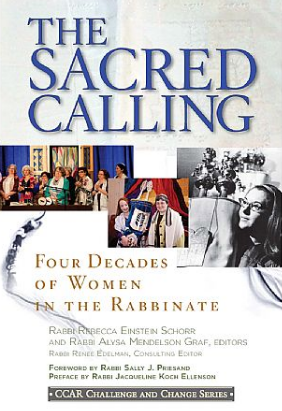 This summer in New York City, more than 100 gathered in the prayer space of Hebrew Union College- Jewish Institute of Religion to hear testimony on the how women’s roles in the rabbinate have evolved over the past 40 years. The room’s stained glass panels echoed the stained glass ceiling women rabbis have pushed against. Three panelists—from different generations, with unique experiences and diverse paths to the pulpit—explained how far the Reform Movement has come since Sally Priesand was ordained in 1972. Rabbi Priesand, Rabbi Rebecca Einstein Schorr and Rabbi Leah Berkowitz also noted how far the Jewish community still has to go for women rabbis to achieve full equality and normativity. The situations that Rabbis Priesand, Schorr, and Berkowitz described can serve as a guiding light for many other previously silenced populations, including transgender and gender-queer rabbis.
This summer in New York City, more than 100 gathered in the prayer space of Hebrew Union College- Jewish Institute of Religion to hear testimony on the how women’s roles in the rabbinate have evolved over the past 40 years. The room’s stained glass panels echoed the stained glass ceiling women rabbis have pushed against. Three panelists—from different generations, with unique experiences and diverse paths to the pulpit—explained how far the Reform Movement has come since Sally Priesand was ordained in 1972. Rabbi Priesand, Rabbi Rebecca Einstein Schorr and Rabbi Leah Berkowitz also noted how far the Jewish community still has to go for women rabbis to achieve full equality and normativity. The situations that Rabbis Priesand, Schorr, and Berkowitz described can serve as a guiding light for many other previously silenced populations, including transgender and gender-queer rabbis.
Rabbi Priesand revealed that becoming the first woman rabbi was never her intention. She simply wanted to be a rabbi. But since there were no women before her, she concluded she would have to be the first.
- No Comments
October 26, 2016 by Yona Zeldis McDonough
Surviving in “The Waiting Room”
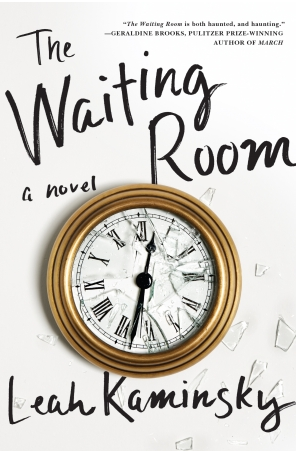 The Waiting Room, shortlisted for the Voss Literary Prize, unfolds over the course of a single, life-changing day, but the story it tells spans five decades, and three continents. As the daughter of Holocaust survivors, Dina’s present has always been haunted by her parents’ pasts. She becomes a doctor, emigrates from Australia to Israel, and builds a family of her own, yet no matter how hard she tries to move on, their ghosts keep pulling her back. A dark, wry sense of humor helps Dina maintain her sanity amid the constant challenges of motherhood and medicine, but when a terror alert is issued in her adopted city, her usual coping skills begin to fray.
The Waiting Room, shortlisted for the Voss Literary Prize, unfolds over the course of a single, life-changing day, but the story it tells spans five decades, and three continents. As the daughter of Holocaust survivors, Dina’s present has always been haunted by her parents’ pasts. She becomes a doctor, emigrates from Australia to Israel, and builds a family of her own, yet no matter how hard she tries to move on, their ghosts keep pulling her back. A dark, wry sense of humor helps Dina maintain her sanity amid the constant challenges of motherhood and medicine, but when a terror alert is issued in her adopted city, her usual coping skills begin to fray.
Interlacing the present and the past over a span of 24 hours, The Waiting Room explores just what it means to endure a day-to-day existence in a country defined by perpetual conflict and trauma. Author Leah Kaminsky e-chats with Lilith Fiction Editor Yona Zeldis McDonough and describes her own complicated journey across continents—and back.
- 1 Comment
October 21, 2016 by Eleanor J. Bader
What Inspired This Non-Jew to Write Amsterdam Holocaust Fiction?
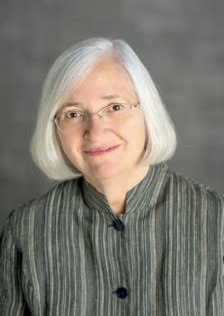
Mary Fillmore, the author of “An Address in Amsterdam”
When writer Mary Dingee Fillmore arrived in Amsterdam for a six month stay in 2001, a photograph she happened upon in the city’s Jewish Historical Museum startled her. The picture showed a favorite landmark (De Waag) near the apartment where she and her partner, astronomer Joanna Rankin, were staying, cordoned off by barbed wire.
“I realized that we were living in the Jewish Quarter,” she explains. “My neighbors had been rounded up just a little over 60 years before. Suddenly, the question of what I would have done during the war became very real to me. Would I have helped them and resisted, or joined the colluders and collaborators?”
- 1 Comment
October 19, 2016 by Barbara Krasner
The Last Survivor
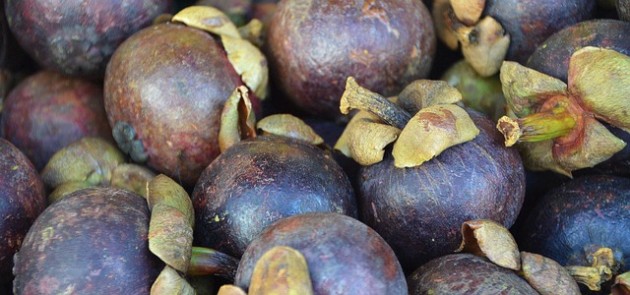 Branka stepped across the threshold of Apartment 4 once more on Vinohradská Street in the Prague district of Žižkov. The same enameled brick hallway. The same double wooden doors. The documentary team had told her to meet them here. They wanted to hear her whole story. Terezín. Auschwitz. Prague Survivors Group. She bore a new moniker since last May when Amalia Grossberg passed away at 109. The U.S. Holocaust Memorial Museum dubbed Branka the Last Survivor. They sent out a press release, and this filmmaker contacted her. The documentary people flew her from Silver Spring to Prague for the filming and would fly her back. Her ninth documentary. His was the only offer she accepted. She wanted to return to Prague. She needed to return to Prague.
Branka stepped across the threshold of Apartment 4 once more on Vinohradská Street in the Prague district of Žižkov. The same enameled brick hallway. The same double wooden doors. The documentary team had told her to meet them here. They wanted to hear her whole story. Terezín. Auschwitz. Prague Survivors Group. She bore a new moniker since last May when Amalia Grossberg passed away at 109. The U.S. Holocaust Memorial Museum dubbed Branka the Last Survivor. They sent out a press release, and this filmmaker contacted her. The documentary people flew her from Silver Spring to Prague for the filming and would fly her back. Her ninth documentary. His was the only offer she accepted. She wanted to return to Prague. She needed to return to Prague.
In her purse she carried the emails her son had printed out for her. The invitations to speak from the Israeli Prime Minister, the American president, and every college and university Holocaust center the world over. They all could wait.
- 2 Comments
October 14, 2016 by Elana Sztokman
God’s Girlfriends: A Review
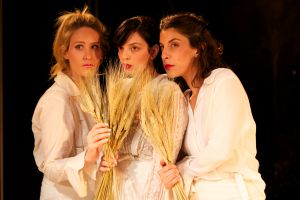
http://www.arab-hebrew-theatre.org.il/en/show.php?id=140
I recently investigated the following question: Does the Bible pass the Bechdel test? You know, this is the test about how pro-women a dramatic production is. The test is simple, and sets an admittedly low bar. In order to pass, the film, show, or play has to have at least two named women as characters, and the two have to talk to one another about something other than a man for more than 30 seconds. I was curious how the Bible fares.
The answer? Out of the 24 books of the Bible, only one book passes: The Book of Ruth.
- No Comments
October 13, 2016 by Yona Zeldis McDonough
From Stolen Silverware to Politicos: An Interview with Michelle Brafman
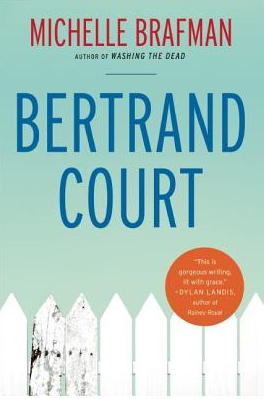 These 17 luminous narratives reveal the secrets of a mismatched cast of politicos, filmmakers, housewives, real estate brokers and consultants, all tied to one suburban neighborhood. Linked through bloodlines and grocery lines, they respond to life’s bruises by grabbing power, sex, or the family silver. As they atone and forgive, they unmask the love and truth that hop white picket fences. One of the stories, “Sylvia’s Spoon,” was a Lilith fiction contest winner in 2006, and it’s still stunning.
These 17 luminous narratives reveal the secrets of a mismatched cast of politicos, filmmakers, housewives, real estate brokers and consultants, all tied to one suburban neighborhood. Linked through bloodlines and grocery lines, they respond to life’s bruises by grabbing power, sex, or the family silver. As they atone and forgive, they unmask the love and truth that hop white picket fences. One of the stories, “Sylvia’s Spoon,” was a Lilith fiction contest winner in 2006, and it’s still stunning.
Author Michelle Brafman e-chats with Lilith’s Fiction Editor, Yona Zeldis McDonough, about the stories that inform the stories.
- No Comments
 Please wait...
Please wait...